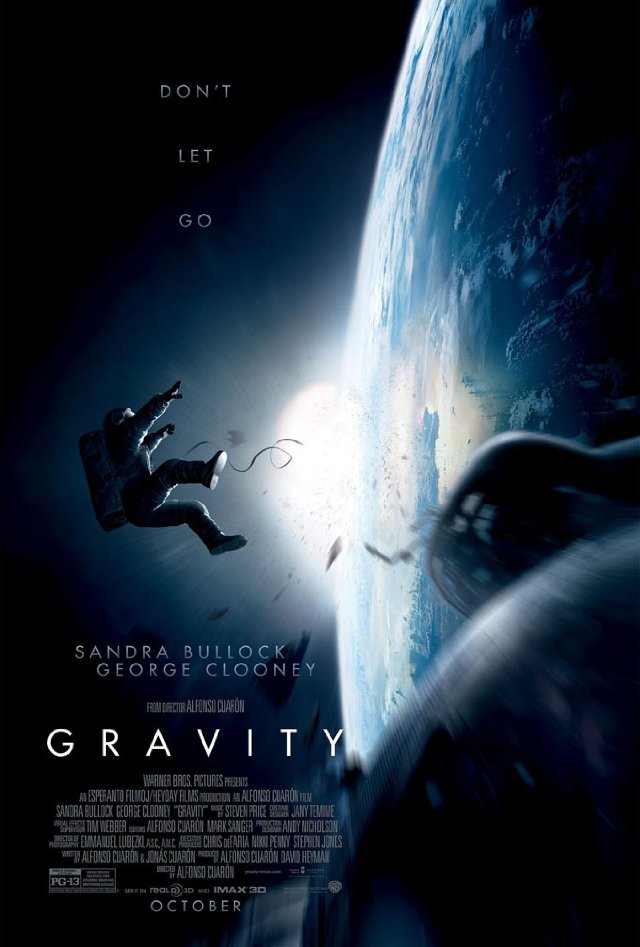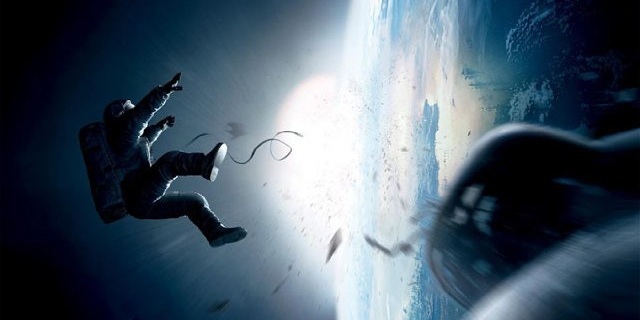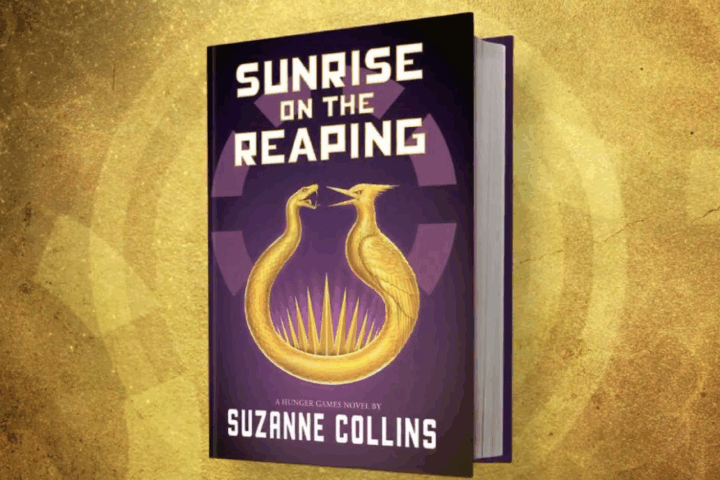It’s rare that a movie gets branded an “experience.” There have only been a couple of these films in the last few years–2009’sAvatar, last year’s Life of Pi. You know the type: the ones that get called “majestic” and “immersive.” The ones everyone tells you see in theaters, the ones that are a travesty to watch in anything less than IMAX-3D
It’s rare that a movie gets branded an “experience.”
Alfonso Cuaron’s Gravity is one of those movies. And sure, while that pair of plastic glasses will run you an extra ten bucks, it will certainly add to the experience. Unless you have vertigo, of course, in which case they’ll only add to your nausea…
If you’ve seen the trailer, you probably have a general idea of what the plot entails. George Clooney and Sandra Bullock are astronauts aboard the ISS when things go very, very wrong. In this case, wrong means a massive cloud of debris orbiting around the planet, destroying all in its wake. Cuaron manages to turn that simple concept into a compelling ninety-minute drama. Compared to the onslaught of two-hour-plus epics that are released nowadays, Gravity is a refreshing change of pace–streamlined, direct, and no longer than it has to be.
Cuaron’s direction is as much a star as Bullock and Clooney. The Children of Men director is a fan of long, pensive takes, with an average shot length of nearly a minute. He and his cinematographer, Emmanuel Lubezki, literally had to build new technologies in order to capture the vision they wanted, as the methods necessary did not exist when they began. While Ron Howard had to shoot sequences of Apollo 13 inside an actual plane in order to achieve the zero-g effect, Gravity is almost entirely computer-generated. In spite of Gravity’s special effects, the movie feels organic, and when you toss in the mesmerizing 3D, the film looks so real that it’s tough to resist the urge to reach out into the screen.

There’s no sound in space, so almost everything we hear in the film is either through an intercom or non-diegetic. The music, contrasted with the bare soundtrack of the rest of the film, underscores and dramatizes what we see on screen, punctuating an explosion or providing a meditative atmosphere during moments of silence.
Of course, there is the necessary caveat to a film like Gravity–if you take away the extra dimension, the spectacle, what’s left? While Gravity is arguably a visually impressive film regardless of the size of the screen, there are places where the script falters. Bullock does an excellent job carrying the film, but there are times when the words she’s been given feel stiff and somewhat forced. Do not see this movie hoping for a lesson in physics either, as many scientific details had to be changed to suit the narrative. That said,, if you’re the type who watches space movies for the physics, you’re probably not much fun anyway.
All in all, Gravity is not a perfect movie. But the magic of the ride it takes you on–from that first view of the planet, to the emotional ending–makes up for its faults. And there’s something to be said for feeling like you have left earth watching a film. After all, while the film is called Gravity, the most shining moments are when the film frees you from it.






